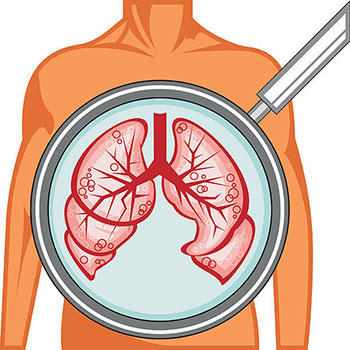Benefits of Reducing Smoking Quantified in Prospective Cohort Study
, by Jennifer K. Loukissas, M.P.P.
A new analysis quantifies the benefit of reducing the number of cigarettes smoked per day and the proportion of months smoked on declining risks for lung cancer; quitting completely remains the most effective way for people who smoke to reduce their risk. These findings were published January 25, 2024, in the Journal of the National Cancer Institute.
Smoking is the most important cause of lung cancer and changes in smoking behaviors affect risk over time. Prior studies have explored reductions in smoking behaviors more generally and noted the benefit for lung cancer risk. Reducing cigarettes per day may lower the risk of lung cancer compared with continuing to smoke at the same amount. Other changes in smoking behaviors, such as increasing cigarette consumption or quitting for a period and restarting, may also affect risk.
Daniela S. Gutiérrez Torres, Sc.D., M.S., postdoctoral fellow, and colleagues in the Metabolic Epidemiology and Biostatistics Branches, leveraged prospective longitudinal data on cigarette smoking that was collected every four months for five to eight years among 24,613 men who smoked enrolled in the Alpha-Tocopherol, Beta-Carotene Cancer Prevention Study (ATBC). Cigarette use was assessed every four months during the intervention period of the trial. The unique serial data allowed them to examine many changes in smoking status: transitions between smoking, trying to quit, and not smoking, and cigarettes per day in ATBC, which was conducted in Finland between 1985 and 1993. The men were followed from the end of the intervention period in 1993 until their first lung cancer diagnosis, death, or December 31, 2012, whichever came first.
To distinguish between the proportion of months that men smoked and the amount that men smoked each day, they developed a novel statistical method to summarize individual smoking trajectories and estimate the long-term impact of changes in smoking on lung cancer risk.
They found reductions in cigarettes per day and the amount of time that men smoked during the intervention period were both associated with lower risk of lung cancer. Compared with smoking 20 cigarettes/day throughout, reducing to 15 cigarettes/day was associated with a 20% reduction in the subsequent risk of lung cancer.
Smoking behaviors are complex. People who smoke often go through multiple transitions between smoking, abstinence, relapse, and changes in cigarettes per day. Some of these attempts can result in permanent smoking cessation. Additionally, use of other tobacco products may affect patterns of cigarette use. While stopping smoking altogether will lead to the greatest reduction in cancer risk, this research shows that reducing smoking can be beneficial.
Reference
Gutiérrez-Torres DS. et al. Changes in smoking use and subsequent lung cancer risk in the ATBC Study. JNCI. 2024.
